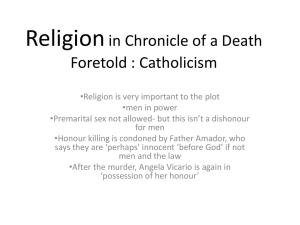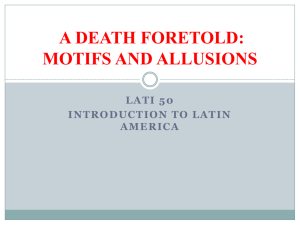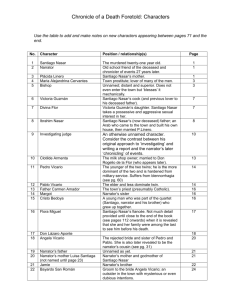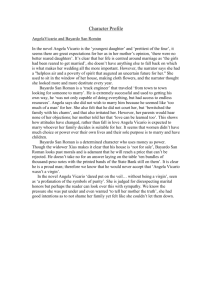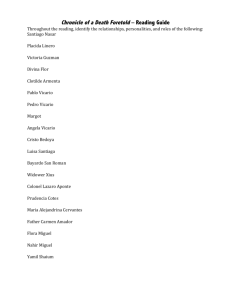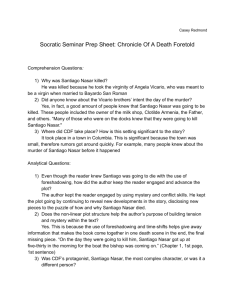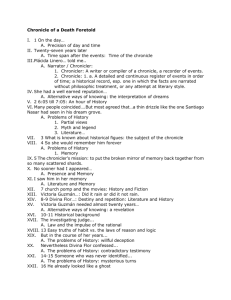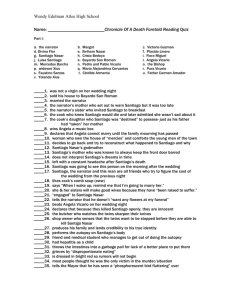Character notes
advertisement
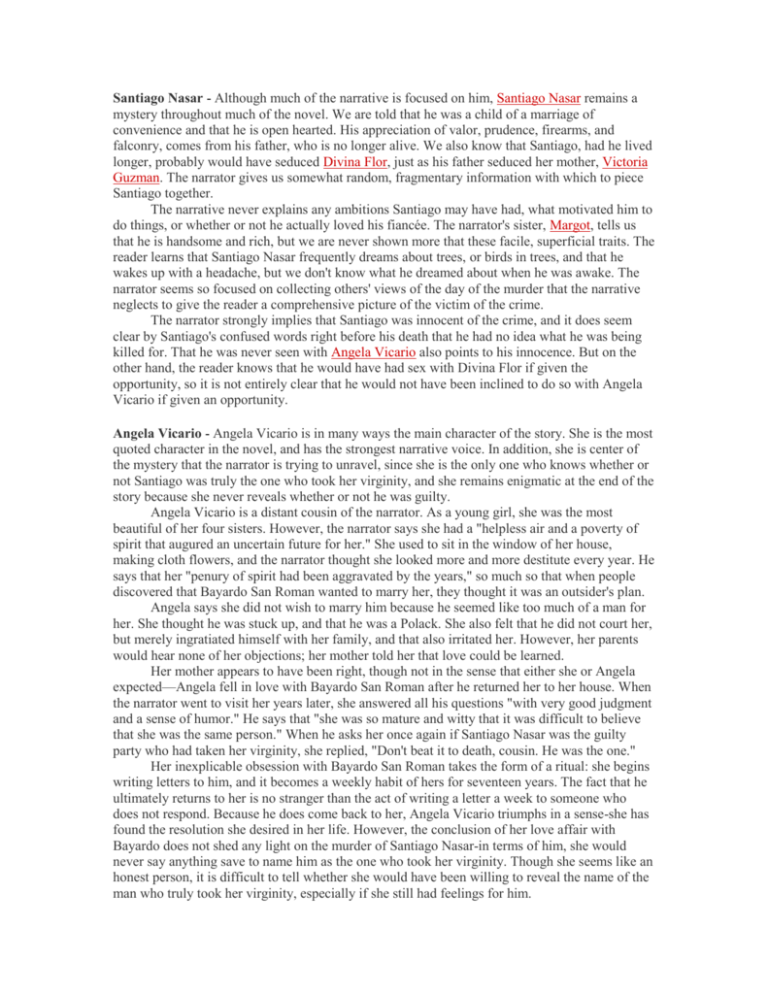
Santiago Nasar - Although much of the narrative is focused on him, Santiago Nasar remains a mystery throughout much of the novel. We are told that he was a child of a marriage of convenience and that he is open hearted. His appreciation of valor, prudence, firearms, and falconry, comes from his father, who is no longer alive. We also know that Santiago, had he lived longer, probably would have seduced Divina Flor, just as his father seduced her mother, Victoria Guzman. The narrator gives us somewhat random, fragmentary information with which to piece Santiago together. The narrative never explains any ambitions Santiago may have had, what motivated him to do things, or whether or not he actually loved his fiancée. The narrator's sister, Margot, tells us that he is handsome and rich, but we are never shown more that these facile, superficial traits. The reader learns that Santiago Nasar frequently dreams about trees, or birds in trees, and that he wakes up with a headache, but we don't know what he dreamed about when he was awake. The narrator seems so focused on collecting others' views of the day of the murder that the narrative neglects to give the reader a comprehensive picture of the victim of the crime. The narrator strongly implies that Santiago was innocent of the crime, and it does seem clear by Santiago's confused words right before his death that he had no idea what he was being killed for. That he was never seen with Angela Vicario also points to his innocence. But on the other hand, the reader knows that he would have had sex with Divina Flor if given the opportunity, so it is not entirely clear that he would not have been inclined to do so with Angela Vicario if given an opportunity. Angela Vicario - Angela Vicario is in many ways the main character of the story. She is the most quoted character in the novel, and has the strongest narrative voice. In addition, she is center of the mystery that the narrator is trying to unravel, since she is the only one who knows whether or not Santiago was truly the one who took her virginity, and she remains enigmatic at the end of the story because she never reveals whether or not he was guilty. Angela Vicario is a distant cousin of the narrator. As a young girl, she was the most beautiful of her four sisters. However, the narrator says she had a "helpless air and a poverty of spirit that augured an uncertain future for her." She used to sit in the window of her house, making cloth flowers, and the narrator thought she looked more and more destitute every year. He says that her "penury of spirit had been aggravated by the years," so much so that when people discovered that Bayardo San Roman wanted to marry her, they thought it was an outsider's plan. Angela says she did not wish to marry him because he seemed like too much of a man for her. She thought he was stuck up, and that he was a Polack. She also felt that he did not court her, but merely ingratiated himself with her family, and that also irritated her. However, her parents would hear none of her objections; her mother told her that love could be learned. Her mother appears to have been right, though not in the sense that either she or Angela expected—Angela fell in love with Bayardo San Roman after he returned her to her house. When the narrator went to visit her years later, she answered all his questions "with very good judgment and a sense of humor." He says that "she was so mature and witty that it was difficult to believe that she was the same person." When he asks her once again if Santiago Nasar was the guilty party who had taken her virginity, she replied, "Don't beat it to death, cousin. He was the one." Her inexplicable obsession with Bayardo San Roman takes the form of a ritual: she begins writing letters to him, and it becomes a weekly habit of hers for seventeen years. The fact that he ultimately returns to her is no stranger than the act of writing a letter a week to someone who does not respond. Because he does come back to her, Angela Vicario triumphs in a sense-she has found the resolution she desired in her life. However, the conclusion of her love affair with Bayardo does not shed any light on the murder of Santiago Nasar-in terms of him, she would never say anything save to name him as the one who took her virginity. Though she seems like an honest person, it is difficult to tell whether she would have been willing to reveal the name of the man who truly took her virginity, especially if she still had feelings for him.
